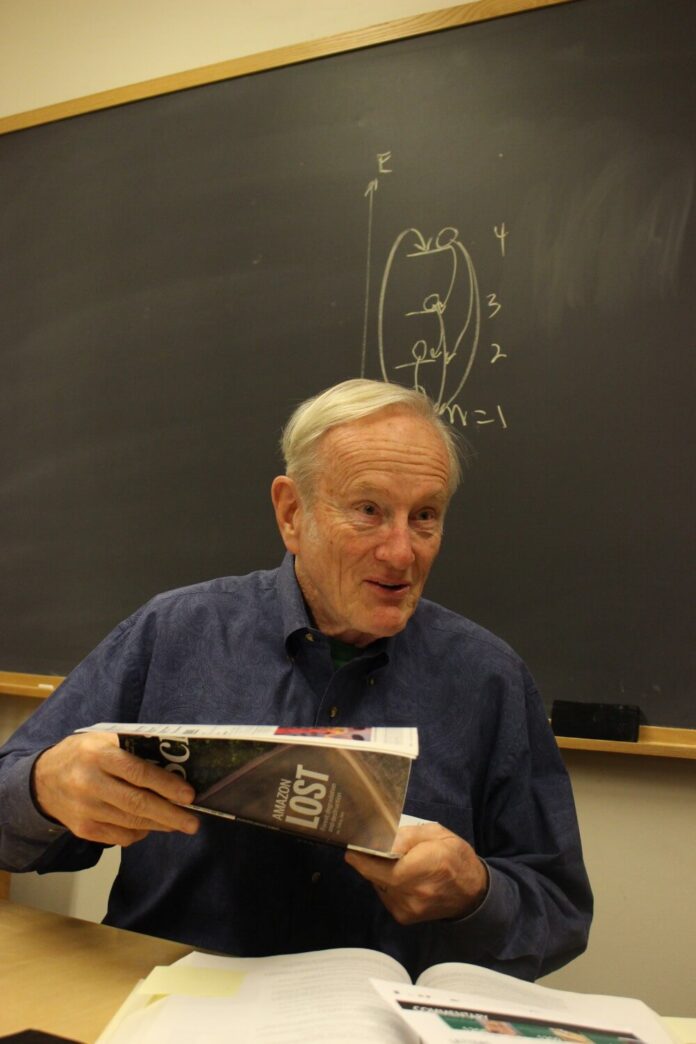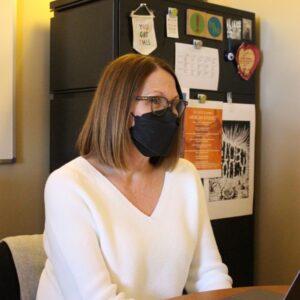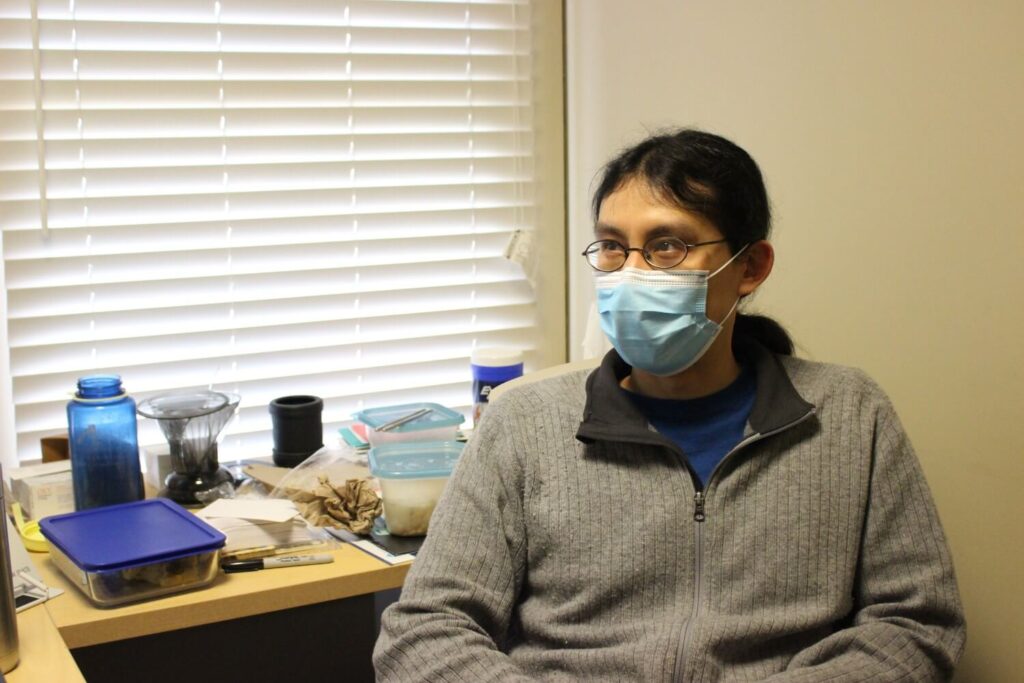
Occidental chemistry professor Chris Craney still has the slide rule he used as an undergraduate, long after calculators replaced it in the classroom. Craney said he spent a week in college learning how to complete calculations on it, and while the equipment might hold some sentimentality, he is grateful he does not have to teach his students to use slide rules or spend hours doing calculations anymore. Craney said he sees ChatGPT as another tool, like the calculator, for helping students learn how to learn.
ChatGPT is a model powered by artificial intelligence (AI) intended to interact with input in a conversational, human-like way. Originally released in 2019, ChatGPT has recently been used to make a court decision, pass college courses and write a novel. It has been controversial in a wide spread of settings, including education and business. The chatbot can respond to a variety of different prompts, including examining its own role in educational spaces.
“The controversies around the use of ChatGPT in educational settings mainly concern issues of bias, ethics and reliability of the information generated by the model,” the chatbot said.
Professor Craney said that ChatGPT’s responses fall in the lower domains — regurgitation and memorization — in Bloom’s Taxonomy of human cognition. Craney said that in Occidental classes, students should be thinking at a higher cognitive level than the chatbot operates.
“What we want to focus on is the evaluation, synthesis, assessment — those domains, which require you pull various ideas together from multiple directions,” Craney said.
Craney said academic integrity is a concern in the use of ChatGPT, but he sees this as a way to push faculty to ask more interesting questions.
“We ought to be focusing on creativity — how do we put things together in ways that are not just regurgitating the same old same old back and forth,” Craney said.
Occidental Science Librarian Kathleen Makarewicz compiled resources for AI use in a library research guide.
“By providing information on what ChatGPT is, what it can do and can’t do, and how others are thinking about it, the library hopes to help faculty, students and staff make decisions about its use,” Makarewicz said. “We need to examine the risks and benefits of it and decide if its use will enhance and support information literacy and the community as a whole.”

Professor Julie Prebel has been addressing ChatGPT with staff members of the Writing Center. As the department chair of Interdisciplinary Writing and director of the Occidental Writing Center, she showed staff samples of writing produced by the chatbot to formulate an approach to the use of ChatGPT for essay writing. She said they found that the samples lacked citations, exhibited a thin and general discussion of concepts and did not meet the entire criteria of the assignments.
“The Writing Center staff felt pretty confident that they would be able to guide the students toward revision,” Prebel said. “And the revision required to address those concerns would essentially produce an entirely different essay.”
Prebel also said that the writing revisions ChatGPT provides are not the first of its kind; Grammarly is a widely accepted tool in college writing. However, Prebel said the Writing Center offers students writing help on a different scale. She said the Writing Center focuses on the process of writing, instead of just the product.

“We also want students to develop more confidence in themselves as writers,” Prebel said. “ChatGPT is not going to replace that.”
Professor Justin Li, who teaches in the Computer Science and Cognitive Science departments, said he thinks ChatGPT will raise the standards for evidence of student learning. He said he wants to stress to students the tradeoffs of using the chatbot to complete assignments.
“Are you taking this class because you want to learn something, because you want to improve your writing, or are you just there to get the work done and get an A?” Li said. “Yes, you can use this to do some of your assignments for you, and in the short term, that might save you an hour. In the long term, that’s not necessarily what is going to be beneficial.”
Contact Mollie Barnes at mbarnes@oxy.edu
![]()






























